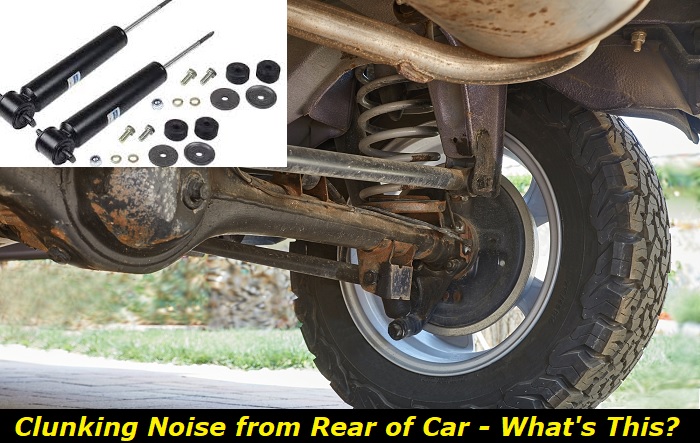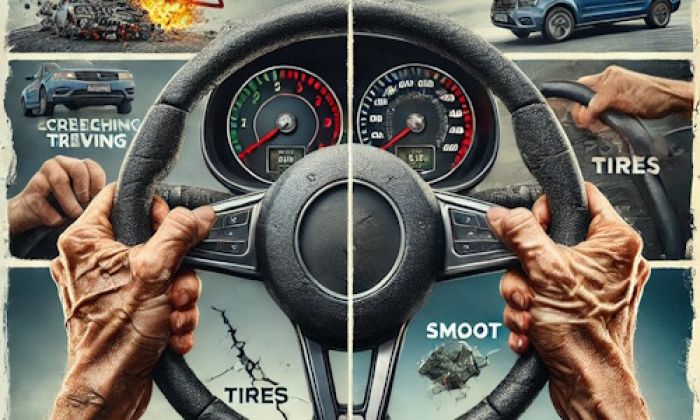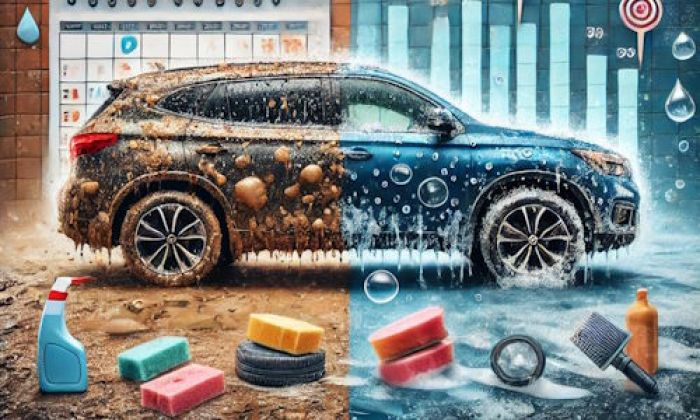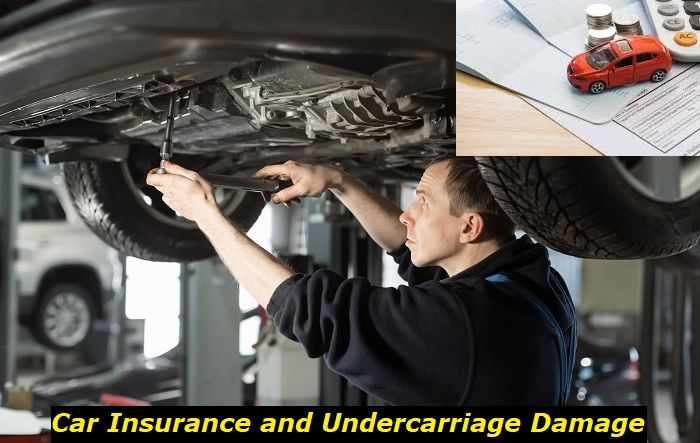Unusual sounds from any part of your car can be very frustrating. The longer you use a vehicle, the more likely you will experience it making some undesirable sound. Strange sounds usually indicate damage, wear, or something out of place. The damage may be small or significant, but until you get the problem diagnosed, you will not know what is causing the sound or how to fix it.
Rear suspension problems highlights
- Level of importance:medium
- Common reasons:road potholes, speed bumps, accidents, normal wear
- DIY inspection:possible but very complicated
- DIY repair:usually,impossible
- Average price in shops:$250 - $800
- Average time:3 - 6 hours
- If ignored:fatal failure, no drive, expensive repairs

Causes And Solutions to Clunking Noise from The Rear of a Car
1) Damaged Sway Bar Link
Many vehicles make clunking noises from the rear due to a damaged sway bar link. Sway bar links function to reduce body lean in turns. Also, the sway bar link is a part of the suspension system. The link connects the sway bar to the suspension.
The sway bar helps the car improve stability while cornering or turning. The link connects the suspension to the body of the vehicle. If that link is loose, damaged, or worn out, it might result in clunking, rattling, or clinking sounds from the vehicle's rear. The clunking noise from the sway bar link could be constant, random, or accentuated when you try to turn.
A reason why the Sway bar link wears out could be because of a damaged or broken seal. The sway bar link seal is flexible and keeps lubricant within the sway bar end links. Additionally, suppose the sway bar link gets broken on one side. In such a situation, the bar may get repositioned too much one way or the other. Also, the bar could slide right and left through the bushing if both links break. Do not drive your car if you detect a damaged sway bar link.
Solution
Jack the car up and locate the sway bar link. Check to see if the seal at the ends of the sway bar link is still in place. Alternatively, you can wiggle the sway bar link to hear if it will make a clinking or clunking sound. You will need to replace the sway bar link if it has suffered damage. Replacement sway bar links are cheap, and installations are somewhat straightforward. In some cases, it is the sway bar itself that has suffered damage. In that case, the sway bar needs replacing.
2) Sway Bar Bushing
The sway bar bushing keeps the sway bar away from the body of the car to reduce friction and noise. Usually, the sway bar bushing does not break easily, but it can happen. A more likely reason for the sway bar bushing to cause the clunking sounds from the rear of the vehicle is because it has worn out.
The sway bar is likely to last throughout the lifetime of the vehicle. Yet, the bushing is more likely to wear as time progresses because the suspension moves up and down frequently. If the bushing becomes worn or breaks, the sway bar will become unstable, causing a clunking sound while you drive.
Solution
The most effective way to detect faulty bushing is to grab the sway bar and give it a wiggle. If the sway bar bushing has suffered damage, it will make a rattling or clunking sound as you wiggle the sway bar. Make sure you check both sides of the sway bar bushing near the vehicle's tires.
If the sway bar bushing wears or breaks, you should replace it. Like the sway bar link, the sway bar bushing is cheap and easy to replace.
3) Worn-Out Shock Absorbers
Shock absorbers are critical in making your car ride comfortable, safe, and stable. Shocks reduce the energy from bumps and other road imperfections. Like the sway bar, the shock absorber is also part of a car's suspension system. All cars have four shock absorbers, one at each wheel. Damage or wear to the pair at the back can cause a clunking sound from the vehicle's rear.
Suppose the shock absorbers at the rear of your vehicle get worn out. In that case, you might hear unusual sounds, especially when you drive over bumps, potholes, and other irregularities on the road.
Solution
Following the running theme of the solutions in this article, you will need replacements if your shocks are faulty. Shock absorber replacements are cheap. Also, shock absorber replacements are straightforward; you can do it at home with the right tools and a guide.
4) Worn Ball Sockets
Ball sockets, also known as ball joints, are part of the steering and suspension systems. They provide a range of motion and, at the same time, maintain stability and support between connected areas. A damaged ball joint at the vehicle's rear might cause a clunking sound from the back.
Ball sockets typically last for a long time, as much as seventy thousand miles. Yet, based on the usage of the vehicle, the ball sockets may wear faster. For instance, driving habits, contact with splash or salt, and road conditions could affect the life of a ball joint.
A key clue to a worn-out or faulty ball socket is the intermittent clunking sound that emanates from the corners of the vehicle. When you drive over a bump or when you turn, the clunking sound usually becomes more audible.
Solution
A worn-out ball joint is not something to take lightly. So, should the culprit of the rear or even a front clunking sound be a ball joint issue, you should abstain from driving the car until you fix it.
If the ball joint is defective, you must replace it. Replacing a damaged ball joint is not expensive or complicated.
5) Damaged Rear Differential
The rear differential helps the wheels turn smoothly around corners or when turning. Also, the rear differential helps prevent the car from skidding and jerking. Thus, the absence of the rear differential will compromise the car's handling, potentially leading to dangerous situations.
One reason for the rear differential getting damaged is the degradation of the oil inside it. The oil prevents the gears inside the differential from wearing out quickly. If the rear differential is faulty, you will likely hear unusual noises, including banging, whining, rattling, and clunking. Outside of the clunking sound, a malfunctioning differential could lead to your gears seizing. Furthermore, a faulty rear differential could lead to your wheels locking up. All this can cause more damage to your vehicle and even an accident.
Solution
The rear differential is quite different from the other problems we have encountered. It could be expensive and complicated to replace. If the oil in the rear differential degrades, replacing it could cost up to $300, depending on your model. But a replacement rear differential could cost a few thousand dollars if completely damaged.
Diagnosing this problem can be difficult, and repairing it is even more daunting. We recommend consulting a mechanic to fix any problem with the rear differential.
6) Defective Wheel Bearing
Wheel bearings are vital to a vehicle's suspension, braking, and steering system. During a car's operation, the wheel bearing helps the wheels spin smoothly without wobbling or shaking. The wheel bearings are grease-lubricated to minimize friction and prevent overheating.
An issue with any rear wheel bearings could cause several problems, including unusual or weird noises. Many types of noises can come from faulty wheel bearings, such as growling or humming, but clunks can also come. A defective wheel bearing could lead to a dangerous situation if you drive the car.
Solution
Besides the unwanted noises, other signs of a damaged wheel bearing include uneven tire wear, wheel wobble, and steering wheel vibration, among others. If the wheel bearing has suffered damage or degradation, like almost everything on our list, you must replace it. To save money, you can replace the wheel bearing yourself, but you will need specialized hardware to complete the procedure.
Conclusion
Hearing a clunking sound from the rear of your car can be worrying, frustrating, and even embarrassing. Yet, identifying the cause of the clunking sound can give you an idea of how to resolve the issue. Generally, it is relatively cheap to fix most problems that cause the clunking noise from the rear. Still, if you are unlucky, it can cost a lot of money.
So far, in this article, we have learned some common issues that may cause clunking from the rear of your vehicle. These issues include damage or wear of the sway bar link, rear differential, sway bar bushing, shock absorbers, ball sockets, or wheel bearing. Regular maintenance can prevent a lot of these issues.
However, once you hear the clunking noise, it is paramount that you identify the source of the problem quickly. Early diagnosis and repair of the noise will prevent further damage and dangerous driving situations.
About the authors
The CarAraC research team is composed of seasoned auto mechanics and automotive industry professionals, including individuals with advanced degrees and certifications in their field. Our team members boast prestigious credentials, reflecting their extensive knowledge and skills. These qualifications include: IMI: Institute of the Motor Industry, ASE-Certified Master Automobile Technicians; Coventry University, Graduate of MA in Automotive Journalism; Politecnico di Torino, Italy, MS Automotive Engineering; Ss. Cyril and Methodius University in Skopje, Mechanical University in Skopje; TOC Automotive College; DHA Suffa University, Department of Mechanical Engineering






Add comment